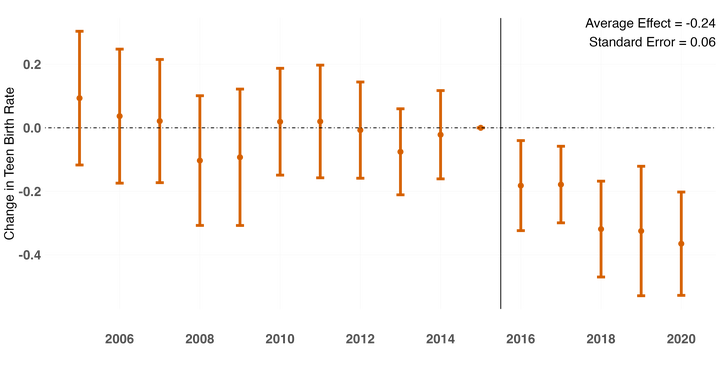The Complementary Role of Information and Contraceptive Access in Teen Pregnancy

Abstract
We investigate how information frictions affect the efficacy of contraception provision programs. We study a Costa-Rican initiative that combined free access to long-acting-reversible contraceptives and a tailored information campaign to correct for baseline misinformation. Using administrative data and geographic variation in the initiative, we find a 16% decrease in the teen birth rate. We show information complements access – an extra year of exposure to the information campaign is equivalent to the effect of contraception access alone. Using surveys on sexual behavior, we show the policy changed the information source from personal networks to healthcare professionals, amending misinformation on sexual health.
Type